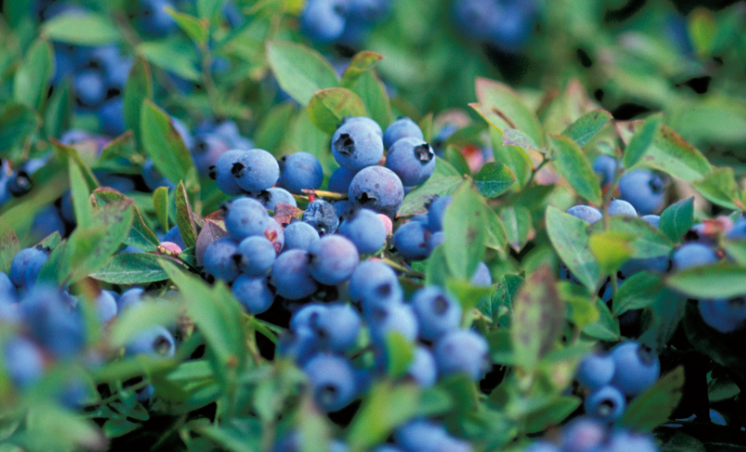Three Keys to Anti-aging You Should Know About
How Nutrition Can Unlock the Door to Age-Related Disease Prevention
The more we know about the aging-nutrition connection, the more theory becomes immutable fact: “Dietary choices are critical to delaying the onset of aging and age-related diseases, and the sooner you start, the greater the benefit,” says Susan Moores, RD, of the American Dietetic Association. Not only is nutrition our secret weapon when it comes aging, the opposite is also true – what we eat can cause aging. So, if you are still searching for the fountain of youth, stop the exploring and start eating, because the jury is in: we can use food to speed aging, or to slow it. The choice is on your plate.
In fact, some experts assert that the disease and deterioration that we often consider the natural process of aging is not natural at all, and is, in fact, completely preventable. While aging may not be entirely preventable through nutrition – there are other environmental or biological factors at work – nutrition is clearly a major key to the prevention of the signs of aging and age-related disease.
How does this magical fountain of youth operate? Nutrition works at a cellular level, where the aging process originates. Deep in the cells of our bodies three factors are at work – they overlap and interact with each other, but they are all at the core of preventing – or hastening – the aging process.
The Anti-aging Keys
1. Inflammation
Anti-aging is synonymous with anti-inflammation. Chronic inflammation at the cellular level is at the heart of many degenerative age-related diseases, and controlling it could be the key to delaying the aging process.
Inflammation is an immune reaction on the cellular level. It is our body’s natural defense – the result of a reaction to environmental toxins, irritation, and infection. In a sort of biological conundrum, inflammation protects our bodies and deteriorates it as well. It is the root cause of many chronic and common diseases of aging, such as arthritis, diabetes, heart disease, cancer, osteoporosis, and Alzheimer’s disease.
The good news is that researchers have found that diet has a significant effect on inflammation. It can minimize inflammation and as a result, delay the aging process. Colorful fruits and vegetables, omega-3 and low glycemic foods, for instance, have been named as part of an anti-inflammation diet. Some diets can cause inflammation, too, essentially producing an immune system that is out of control and putting aging in high gear. We could call it the Aging Diet – one characterized by high-carb, low-protein foods, refined sugar and polyunsaturated fats.

2. Oxidation
Inflammation is caused by free radical damage, and the well-known evils of free radicals are due to oxidation. Simply stated, oxidation occurs when the body produces by-products, referred to as oxygen free radicals. The result is a kind of rusting of the body, and when this rusting is applied to humans and not iron, it results in aging and diseases such a cancer. Free radicals are produced inside our bodies, and occur as a result of food, environmental pollutions and everyday things like air, water and sun. As we age, we become more susceptible to the long-term effects of oxidative stress (or too many free radicals) and inflammation on the cellular level. As E.R. Stadtman, a NIH researcher explains, “Aging is a disease. The human life span simply reflects the level of free radical oxidative damage that accumulates in cells. When enough damage accumulates, cells can’t survive properly anymore and they just give up.”
How do we defeat the aging evil of oxidative stress? That’s where antioxidants (think anti-oxidation) come in. The antioxidants eliminate the damage that free radicals cause in our bodies. Some foods are high in antioxidant content and some contain powerful substances called phytonutrients that some believe are capable of unlocking the key to longevity. Phytonutrients are members of the antioxidant family, and are responsible for ridding the body of free radicals, and as a result, slowing the rusting, or the aging, process. That’s one of the reasons that a diet of high antioxidant foods is your first defense against aging.
3. Blood Flow
Blood flow is key #3, and is affected by inflammation and oxidation. Blood vessels are particularly vulnerable to oxidative stress and inflammation, and keeping them healthy cannot be understated when it comes to preventing age-related disease. Blood flow to the heart protects the heart muscle from damage, and prevents restricted blood vessels, which helps the brain, and every organ in the body.
Low blood flow is a major factor in aging; its relationship to aging and its diseases are permanently intertwined. Enter nutrition to change the equation. According to Steve Pratt, author of Superfoods Rx, some foods lower inflammatory markers, cause basal dilation and lower blood pressure and improve blood flow. They work on the capillary level to keep microcirculation working well, and that affects the heart, the brain and eyes and prevents the diseases of aging that attacks them.
Anti-aging Targets: Brain, Heart & Eyes
Maintaining our brain, heart, and eyes top the list for those concerned about preserving health and youthfulness as they age. If these things are healthy, chances are, you’re healthy, too. Perhaps it’s not surprising that usually, these three body parts work in tandem and are subject to the same forces – inflammation, oxidation and blood flow.
Brain. Isolating Alzheimer’s disease is one step toward achieving the ideal: anti-aging. If we can preserve brain function, along with body function, we can delay the aging process.
Researchers have discovered that one of the risk factors of deteriorating brain function appears to be how the body handles glucose. Studies of the genetic code of those with Alzheimer’s disease appear to suggest it is connected to cholesterol metabolism. Also, high antioxidant foods possess anti-inflammatory benefit to the brain, which researchers have found increases cell signaling pathways. We know nutrients are a contributor in combating oxidative stress, and oxidative stress is a major cause of neurodegenerative diseases like Alzheimer’s and Parkinson’s diseases.
Heart. Thanks again to the anti-inflammatory effect of some foods, good nutrition can have a major impact on aging by preserving the function of one of our most important organs, the heart. By decreasing inflammation in the arteries surrounding the heart, we can keep the heart functioning longer and better. Nutrients in some foods that are high in antioxidants protect the heart muscle from damage by acting as anti-inflammatory agents. Nutrition reduces cholesterol levels and by reducing build-up, which helps prevent cardiovascular disease and stroke. And, many studies into the compounds of fruits like wild blueberries indicate supplements can help regulate blood pressure and combat atherosclerosis.
Vision. According to an interesting new study, anthocyanins from blueberries may protect critical eye tissue from premature aging and light-induced damage. The study, published in the British Journal of Nutrition, indicates that cells treated with blueberry extract improved the viability of cells exposed to light which experienced premature aging. The conclusion of the author of the study was that “blueberries, or other kinds of fruits that are rich in anthocyanins, have the potential to prevent age-related macular degeneration and other retinal diseases related to RPE cells.”

Such examples of the vision-nutrition connection is part of a major boon in research into the benefits of dietary prevention when it comes to aging and diseases of aging. Researchers continue to find links between nutrition and healthy eyes. Studies indicate the vitamins and minerals from fruits and vegetables slow the progress of age-related vision loss, and while the exact nutrients and in what combinations is still unknown, researchers have concluded that the big three keys – anti-inflammation, anti-oxidation and blood flow, are at the heart of maintaining vision. Because some foods with anthocyanins, for instance, work on the capillary level to keep microcirculation working well, that has a positive affect on eyes, tired eyes, and vision diseases that occur with age.
Open the door to anti-aging. Still exploring, Ponce de Leon? Try exploring your kitchen instead. When you use nutrition to decrease inflammation, decrease oxidation, and enhance your blood flow, the aging brain, heart, and eyes will have a new lease on long, disease-free life.
Read about how foods can accelerate the aging process.
Watch the video from The Canadian called Anti-Aging linked to Blueberries and Salmon.
Read about the research into the benefits of wild blueberries, a top anti-aging food.



